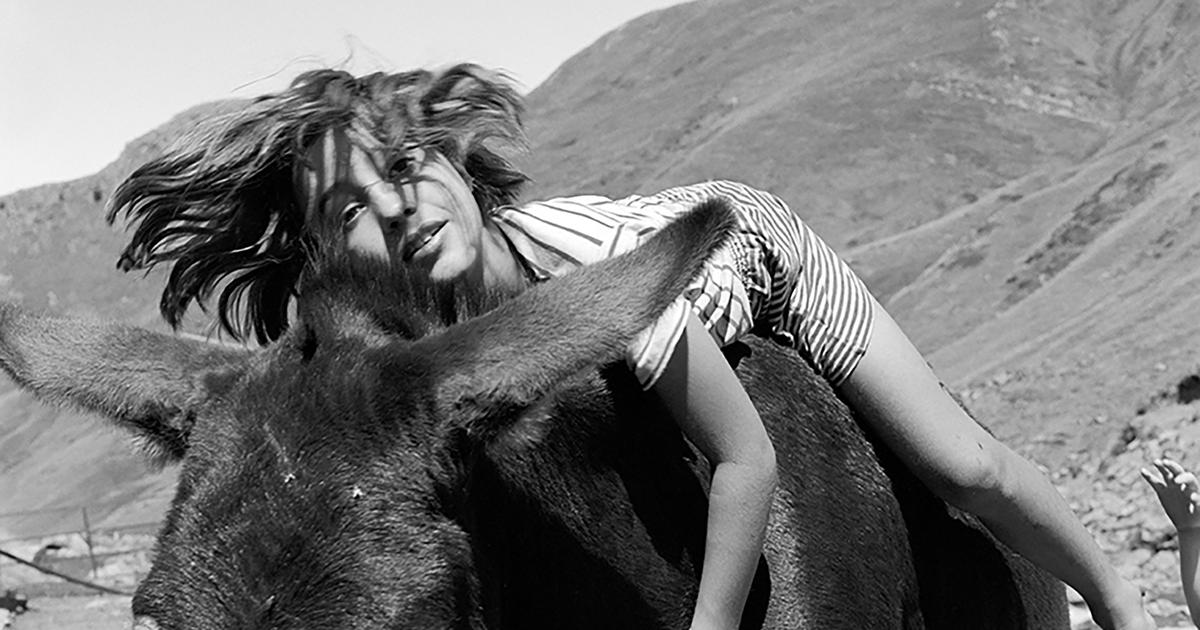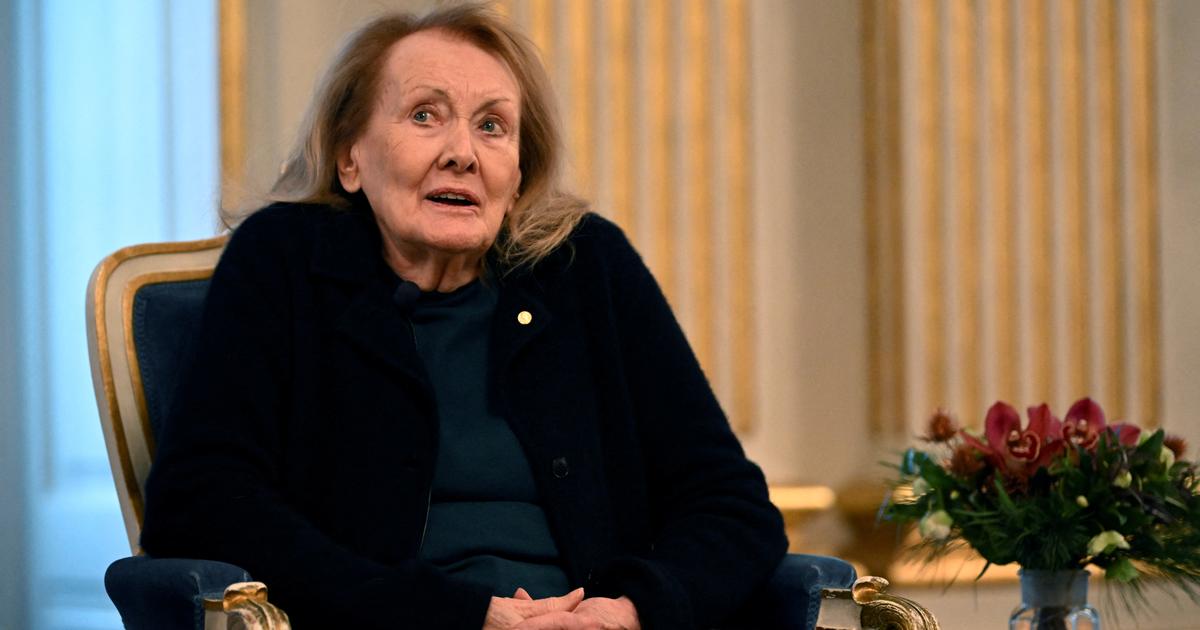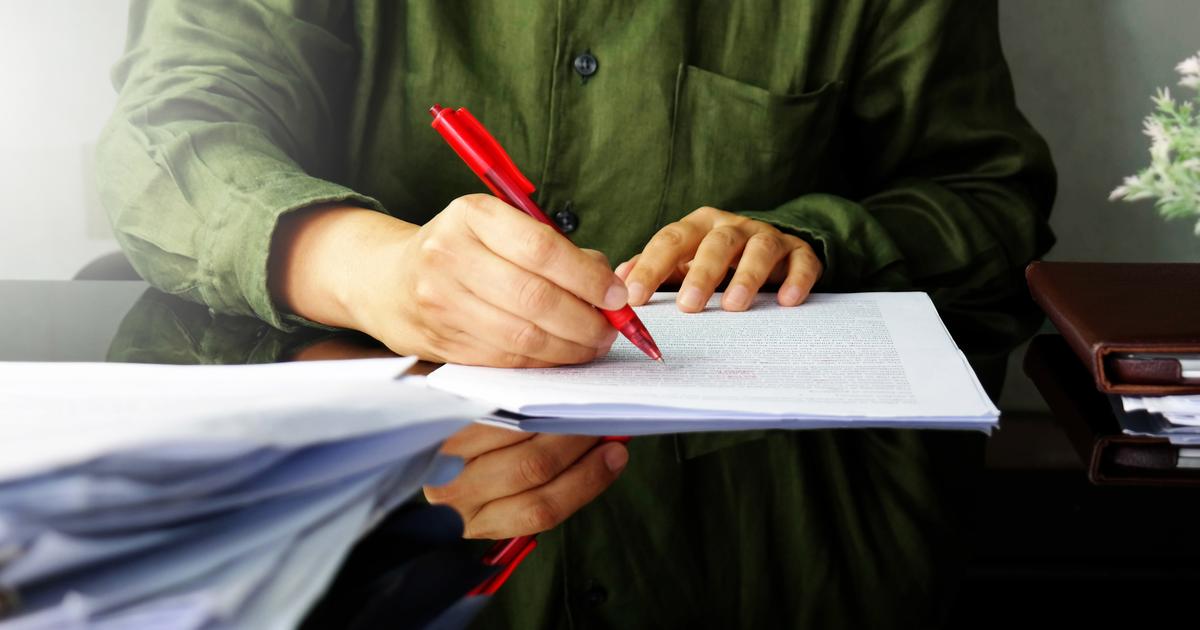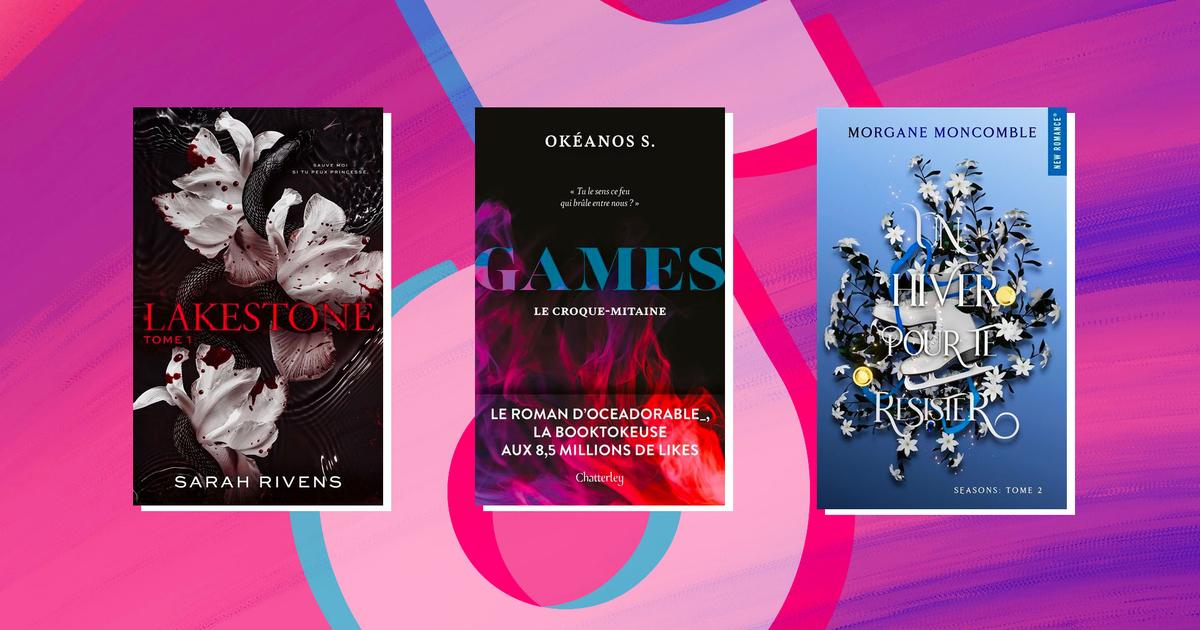Market in France in the 1950s
Photo:AFP
The author starts off only after the jump. First she gets it over with. "One Sunday in June in the early afternoon my father wanted to kill my mother."
This is the first sentence of the novel. Then begins the exploration of its meaning. How did it come about, what did this near act reveal, and how did it work? Not only on those directly involved, but also on their only child, who was called in to prevent a manslaughter with the ax?
This exploration is the subject of the novel; you can formulate it in such a bureaucratic way, because the narrator herself displays a certain bureaucracy. Her peculiar style, with all the conciseness of the words and the well-formedness of her mostly short sentences, keeps away from any prose. Rather, it suggests a voice that has been slowed down by the shock and processes it in minutes: "It was June 15, 1952. The first precise and clear date of my childhood. Before that there are only consecutive days and the date on the blackboard or up in my notebook. "
Author Annie Ernaux
Photo: Roberto Ricciuti / Getty ImagesAnyone who has read Annie Ernaux's previous books ("The Years", "A Woman") knows the milieu and the circumstances of the event. The author, aptly called an "anthropologist of herself", conjures up and circles around her again and again: she studied and left her class as an academic, but her topic is the social background that she does not leave. The small shop and pub that her parents ran in the northern French provincial town of Yvetot, the poverty of the circumstances and the Catholic morality that she inhaled from an early age like the Friday smell of fish, all of this is called out.
Shame as a state
In other books the author supports or tests her memory with material; she picks up photos, plans, and objects to stimulate her memory. Here she goes to the archives of her hometown, studies the newspaper "Paris - Normandie" this Sunday, June 15th, with her articles about the 24 Hours of Le Mans, the wheat harvest and a local crime that actually happened.
But none of this becomes "real". She has to stick to her inner images and rely on the assumption that there is a hidden red thread on which they are strung. This assumption is confirmed: In the end, it is a feeling, the shame, that creates the connection.
However, this shame is more of a state of affairs: "When I started thinking about this text, a mortar shell struck the Sarajevo market, killing several dozen people and injuring hundreds. In the newspaper someone wrote that" a feeling of shame "would have us" packed ". For such people, shame is something you can feel one day and not the next, which you apply to one situation (Bosnia) and not to another (Rwanda)." For people like her, as this text shows without saying it, shame has an ontological quality.
display
Annie Ernaux
The shame
Publisher: Suhrkamp Verlag
Number of pages: 110
Translation: From the French by Onja Finck
Publisher: Suhrkamp Verlag
Number of pages: 110
Translation: From the French by Onja Finck
Buy for € 18.00
Price query time
08/29/2020 10:32 p.m.
No guarantee
Icon: InfoOrder at AmazonIcon: amazon
Order from ThaliaIcon: thalia
Product reviews are purely editorial and independent. Via the so-called affiliate links above, we usually receive a commission from the dealer when making a purchase. More information here23 years passed between the first publication of this book in France and its German translation. But what does that matter? Because between the event that Annie Ernaux dissects here and its version in literature again lay 44 years. Ernaux takes time to remember, and that duration seems to self-extract, which is essential. Her German translator Sonja Finck belongs to the praise and praise of her literature. The two serve bones, from which the poor, precious fish is made while reading.
Icon: The mirror

/cloudfront-eu-central-1.images.arcpublishing.com/prisa/4CMOJWD7RNHHPJD5UVCNRMMLYM.jpg)






